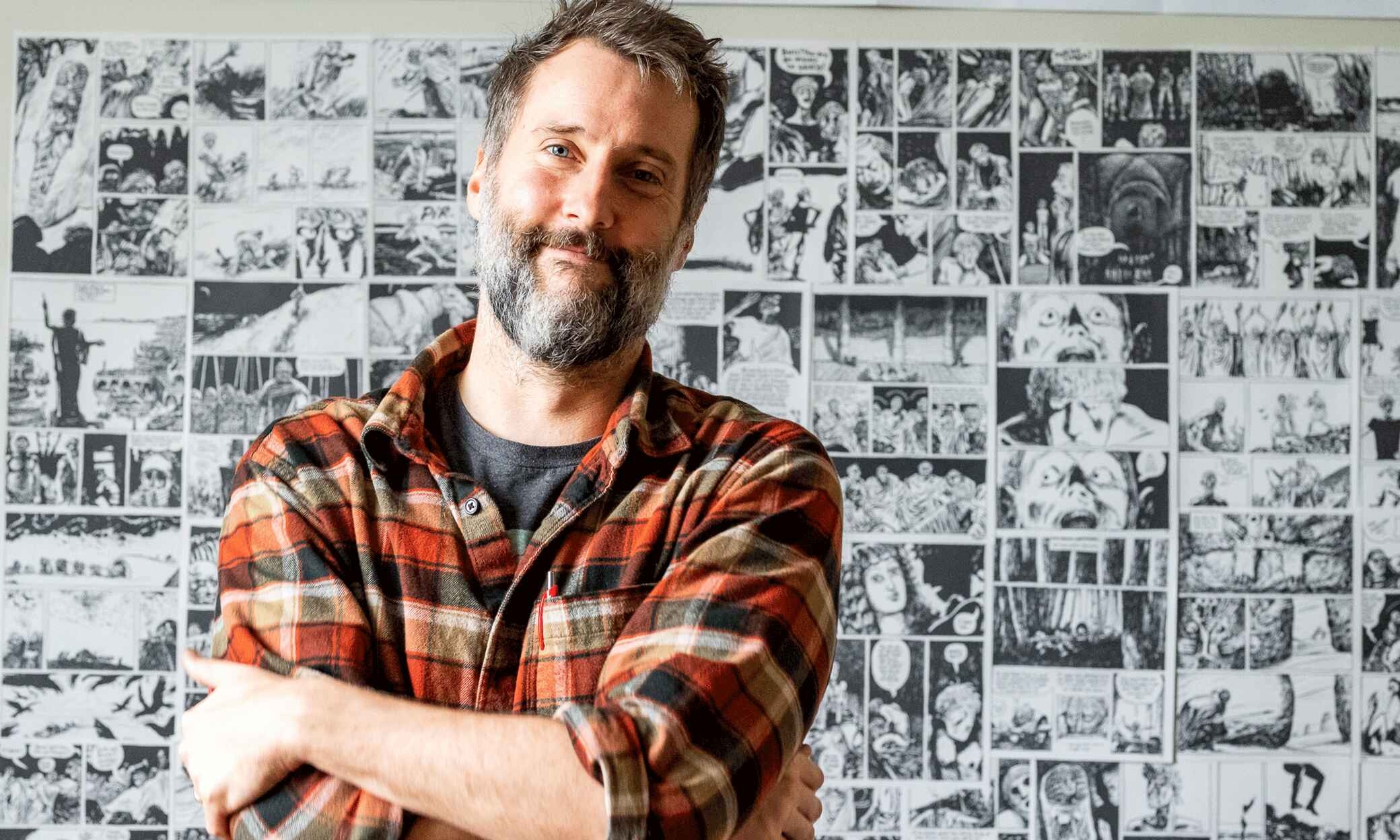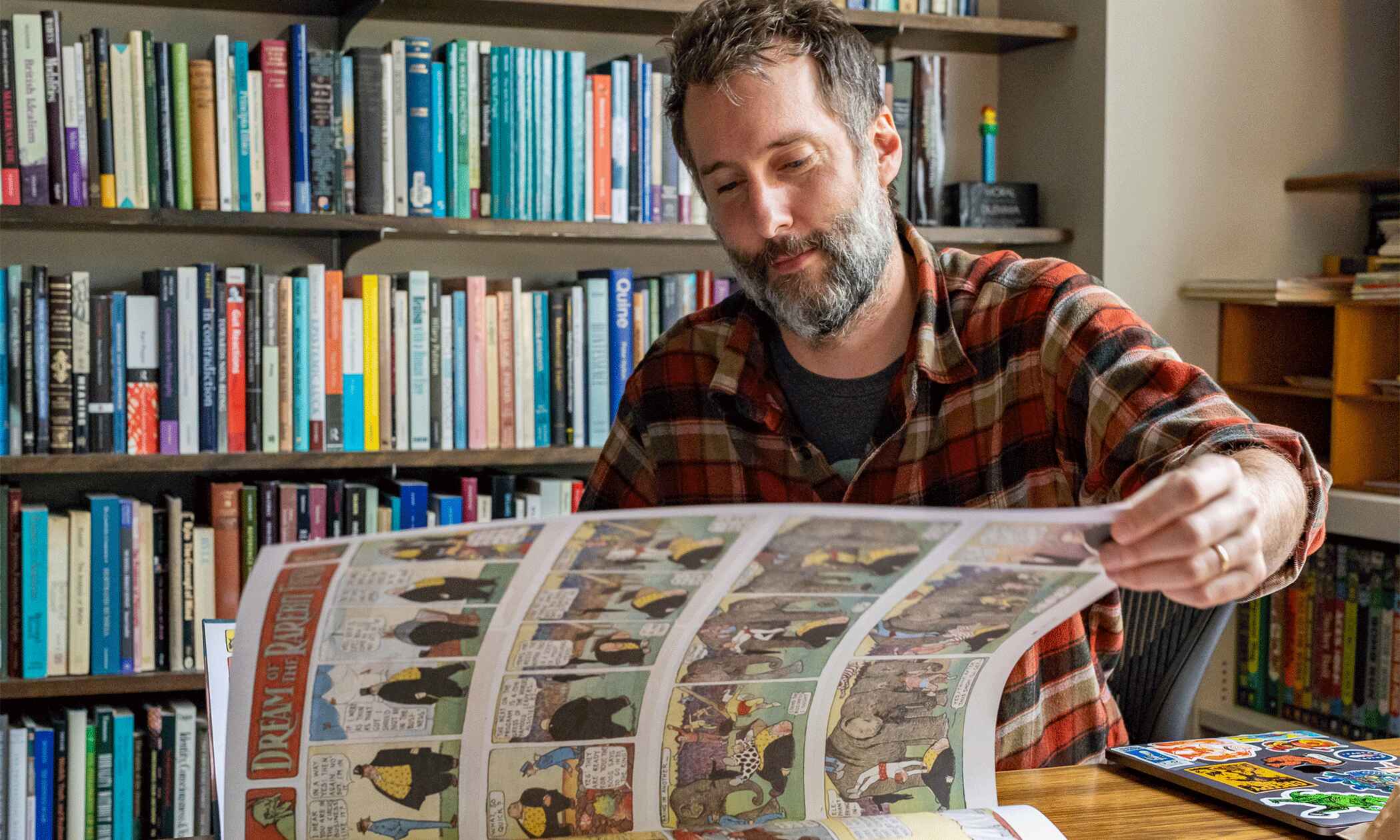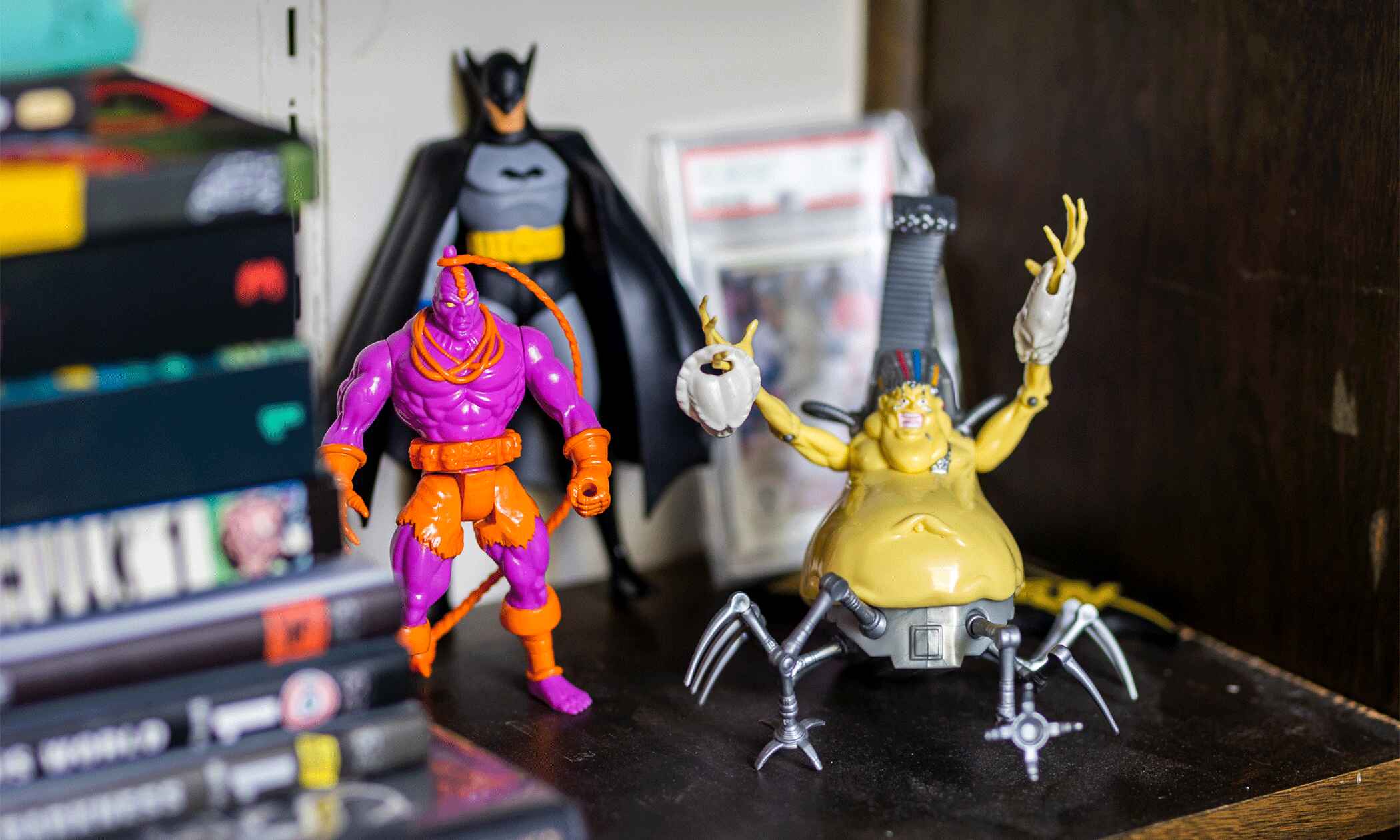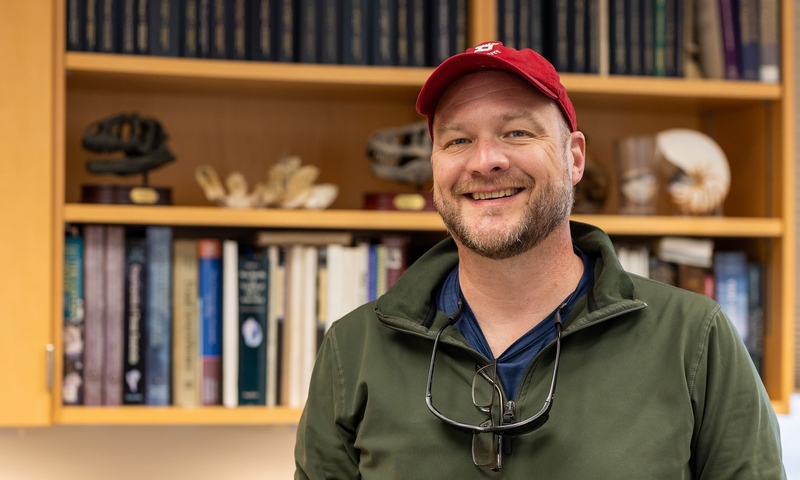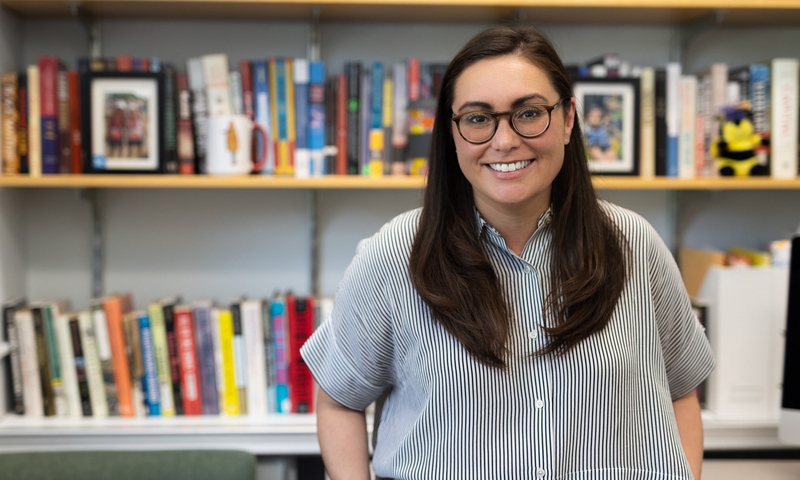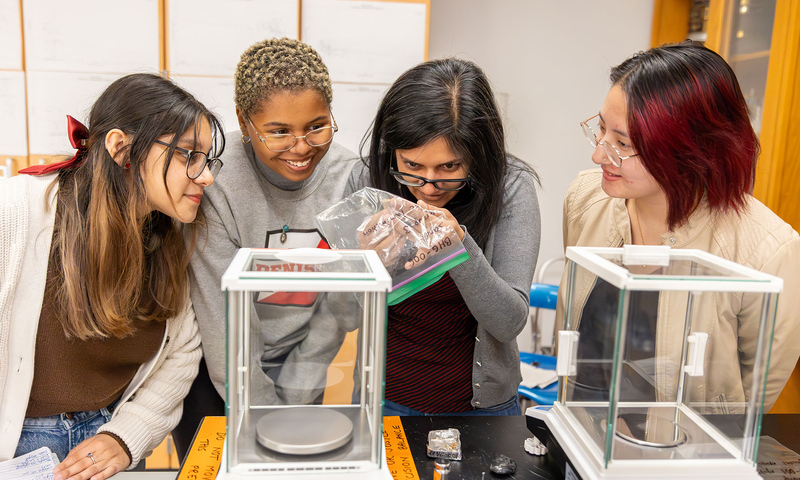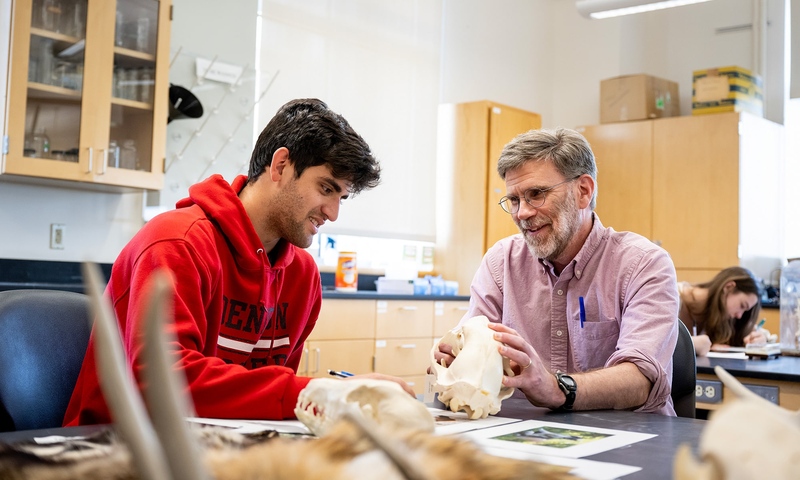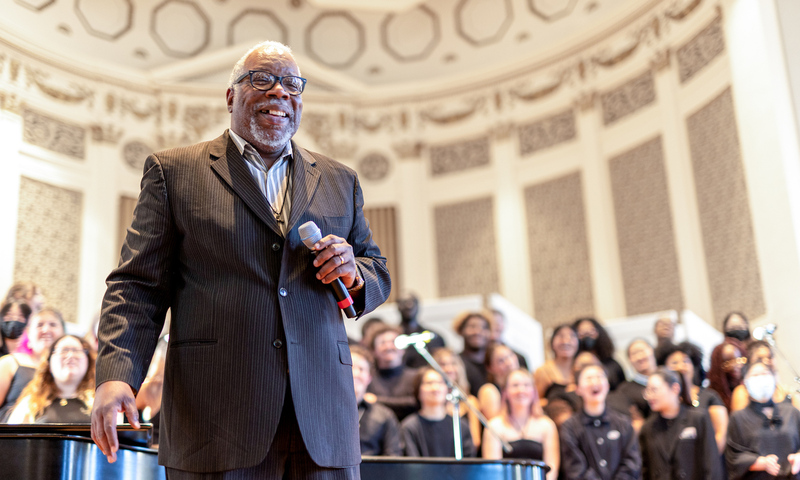Philosophy professor Sam Cowling learned to read by perusing comic books growing up on Vancouver Island in Canada — the adventures of Spider-Man and X-Men feeding his fertile imagination.
Rising through the ranks of academia, he’s never abandoned those vibrant, action-packed panels of his youth. Wham! Splat! Pow!
“There’s this great quip from a comic scholar who says the golden age of comics is whenever you were 12 years old,” says Cowling, chair of Denison’s philosophy department.
All grown up, Cowling looks at the cartoon world through a more sophisticated lens. The professor teaches metaphysics, philosophy of science, and logic.
Since 2015, he’s also taught a course in the philosophy of comics. And a year ago, he co-authored a book, Philosophy of Comics, with Wesley D. Cray, exploring the aesthetic, ethical, and metaphysical questions raised by artists’ creations.
We sat down with Cowling to discuss the state of philosophy, its relevance in today’s cultural climate, and what students should expect to learn in his classes.
Can you give us a connection between comics and the field of philosophy?
There’s a cartoonist named Chris Ware, and he’s one of the best cartoonists alive. I saw him give this talk a couple of years ago, and he was sort of complaining about the fact that they were pulling comics out of libraries. He pointed out that kids love secrets — they love reading any book that seems to have secrets in it. Philosophy seems to have all these weird secrets, too. So, I think, at some level, it’s like poking around trying to find something that feels hidden or vaguely mysterious.
What might students not expect when taking a course in philosophy of comics?
Comics are not simplistic things, and it’s easy to convince students of that once they start thinking about how comics work. Start looking under the hood, and the complexity of the medium is pretty daunting. That’s actually where the philosophy comes in. You realize that by thinking about it in careful and systematic ways, you can learn about yourself as a reader and about the comics that you’re reading.
How do you want students to approach your philosophy classes?
A good philosophy course involves productive confusion. It’s about facing up to arguments and theories and opinions that are quite distant from your own and trying to find value in them. And, at the end of the day, trying to arrive at the most plausible view you can muster.
For those majoring in other subjects, what’s the value of taking a philosophy class as an elective?
Inestimable. The funny thing about philosophy is that you can do it alone. You can do it anywhere and at any time. Whatever your career path, you will end up asking difficult questions about what should be done, about how you should treat others, about how you should be treated. Those are the kinds of moments when a bit of philosophical discipline that somebody else put on a page, ends up being enormously useful.
It feels like sometimes people want simple answers to complex questions. In that regard, is philosophy as important as ever in education?
Philosophy requires us to put an emphasis on considering the possibility of being wrong, which doesn’t come naturally to us. And, in times when we feel strapped for time, and there doesn’t feel like there’s a shred of goodwill out there to be had, philosophy feels especially important as a means for discovering and defending solutions to human problems. It also feels like something that has to be sought out and fought for.
Ohio has been labeled the cradle of comics for all the famous cartoonists with Buckeye State roots (not to
mention the state that gave birth to Superman). It only seems fitting that philosophy professor Sam Cowling is hosting a philosophy of comics conference – believed to be the first of its kind – in downtown Columbus, Ohio, on Aug. 17-19 at Denison Edge. A group of 25 experts in the field, traveling from as far away as Singapore, will attend the three-day event.

